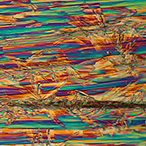Ionic Rare Earths Spearheading Europe's Pursuit of Rare Earths Independence

Ionic advancing 100%-owned African rare earths mine and novel Belfast recycling tech to help Europe build self-sufficient supply chains and meet 25% 2030 recycling targets.
- Ionic Rare Earths is developing a rare earths project in Uganda called Makuutu and a magnet recycling facility with Artic Technologies in Belfast, UK.
- In Uganda, they are working to secure a mining license, have land access agreements for 94% of the target area, build a demonstration plant to start production in Q1 2024, and update the Feasibility Study.
- The demonstration plant will produce mixed rare earth carbonate to supply groups wanting material to test, optimize the process flowsheet, and support the updated feasibility study.
- The magnet recycling facility in Belfast will start 24/7 operation in January 2023 to produce material for supply chain partners like Less Common Metals and Ford.
- Ionic aims to integrate into both mining/refining and recycling supply chains in Europe to provide a holistic rare earths solution.
Rare earth elements (REEs), though not actually rare, are essential for electric vehicles, wind turbines, and other clean energy technologies. With rising demand and very concentrated supply chains, predominantly controlled by China, there are growing calls to develop alternative rare earths mining and recycling capacities outside China.
Ionic Rare Earths is a company working on two fronts to help build rare earths supply chains in Europe and reduce dependency on China. Firstly, they are developing the Makuutu rare earths deposit in Uganda. Secondly, through a joint venture called Artic Technologies, they are setting up a recycling facility capable of extracting rare earths from end-of-life products in Belfast, UK.
Makuutu Rare Earths Project, Uganda
The Makuutu project is located in southeast Uganda. Ionic Rare Earths has a 51% interest in the project and aims to eventually own 100%. The site contains ionic clay hosted rare earth mineralization near surface, amenable to simple extraction processes proven in southern China.
According to Tim Harrison, Managing Director of Ionic Rare Earths, significant progress has been made at Makuutu over the past months:
“We were in Uganda 4 weeks ago meeting with government...trying to push ahead with a mining license application...demonstration plant making progress there in Uganda planning on producing mixed Rare Earth carbonate the first quarter of next year...drilling continuing to release results...land access agreements...over about 94% of that 44 square km area in a little over two months.”
Securing the mining license from the Ugandan government is the critical long pole in the tent. While Ionic had hoped to receive the license by the recent Uganda Minerals Wealth Conference, the government requested they first gain 100% of land access agreements in the license area. This represents a higher threshold than previously indicated but is considered a reasonable request for the first major mining license to be awarded under Uganda's new regulatory regime. Ionic has already managed to secure rights for 94% of the 44 km2 area in just two months, demonstrating rapid progress.
Alongside the mining license application, Ionic is advancing other work streams including mineral exploration drilling, metallurgical test work, early-stage mine design studies, and environmental and social impact assessments. One key focus is building a demonstration plant in Uganda, which will start production in Q1 2024.
"So we'll be making mix Earth carbonate which will be going to a number of interested parties who want to get the product to do their own test work and validation. Plus, it also helps us optimize some parts of the flow sheet...It'll help us also provide detail on the the updated feasibility study."
The demonstration plant will produce mixed rare earth carbonate samples for potential customers and partners to evaluate. This will also allow optimisation of the process flowsheet and provide data to support an updated Feasibility Study in 2024. The initial capacity will be quite modest but a second phase is planned to deliver larger sample volumes as the project moves towards development.
Interest in rare earths from Western countries is linked to building up self-sufficient supply chains to reduce reliance on China. Harrison explains Makuutu's potential role in this regard:
"We've had discussions about the importance of Makuutu in a western supply chain for heavy Rare Earths...and given that we are looking at development in Makuutu, where the first action of product goes doesn't represent where the rest of the potential product may go so we have a vested interest in seeing that supply chain being built out."
While the initial production from Makuutu could be committed to a specific customer or market, Ionic wants to retain flexibility on where future supply goes in order to create "optionality" and "competitive tension" for their heavy rare earth output. As the most advanced rare earths project not controlled by China, Makuutu can act as a foothold for the Western industry to gain direct access to heavy rare earth feedstock. This may pave the way for further foreign direct investment and integration of the supply chain.
Rare Earth Recycling in Belfast
In addition to mining fresh rare earth ore, recycling end-of-life products containing rare earth metals is crucial for building circular supply chains, capturing valuable materials, and displacing primary mining demand. Ionic has partnered with a local team in Belfast to form Artic Technologies which is equipped to strip rare earths and other technology metals out of scrap materials using a novel recovery process. After proving the concept, they are set to commence 24/7 operation in January 2023.
“We've got a couple of new custom filters that have been delivered. They're installing new control system. We're adding some more team members to go to 24/7 in the New Year and then we start pumping out product.”
Unlike most recycling projects targeting rare earth magnets, Artic's process can extract metals from any feedstock containing rare earths, including production scrap and waste residues. This provides more flexibility in securing reliable feedstock supplies compared to relying solely on end-of-life magnet availability. Initial recycling output will be used to provide samples for supply chain partners to evaluate. However, Artic is already collaborating with Less Common Metals and Ford Motor Company giving a clear pathway through the supply chain into electric vehicle production.
The next step is proving the commercial viability of the process via the demonstration plant. Harrison stresses data produced will be crucial.
"This is about integration with metal alloy magnet manufcturing, so that we can provide that holistic solution for recycling in a European market."
Following successful demonstration trials, the intention is then to produce feasibility studies for commercial-scale facilities in Belfast and potentially other European hubs. Artic aims to play a key role in fulfilling ambitious EU targets for rare earth magnet recycling to reach 25% of supply by 2030.
Investment Thesis for Ionic Rare Earths
- Exposure to the full rare earths supply chain - mining project advancing to development plus recycling technology with immediate commercialization potential
- Makuutu can provide the EU and other Western interests direct access to heavy rare earth resources not controlled by China
- Flexibility for Artic’s technology to treat different rare earth feedstocks provides advantage in securing reliable supply
- Collaboration with Ford and Less Common Metals validates Artic’s process and provides a pathway into the EV supply chain
- Alignment with EU national priorities around building domestic rare earths supply chains and achieving recycling targets
Through twin rare earths plays in Africa and Northern Ireland, Ionic Rare Earths aims to position itself at the forefront of Western supply chain localization efforts for critical minerals. While progress has not been as swift as hoped, tangible steps forward are being made at both the Makuutu mining project and the Belfast recycling demonstration plant. Harvesting EU investor and government interest by demonstrating commercial viability at Artic Technologies could help fund full development works at Makuutu. Successfully advancing both initiatives would provide end-to-end regional supply solutions and strategic leverage vis-à-vis China.
Analyst's Notes




Subscribe to Our Channel
Stay Informed


















